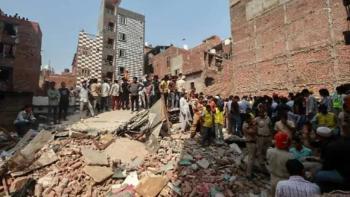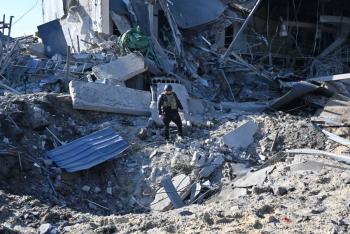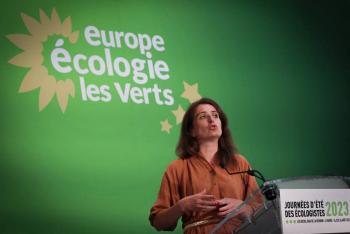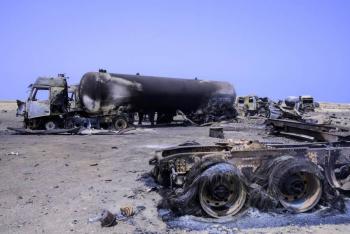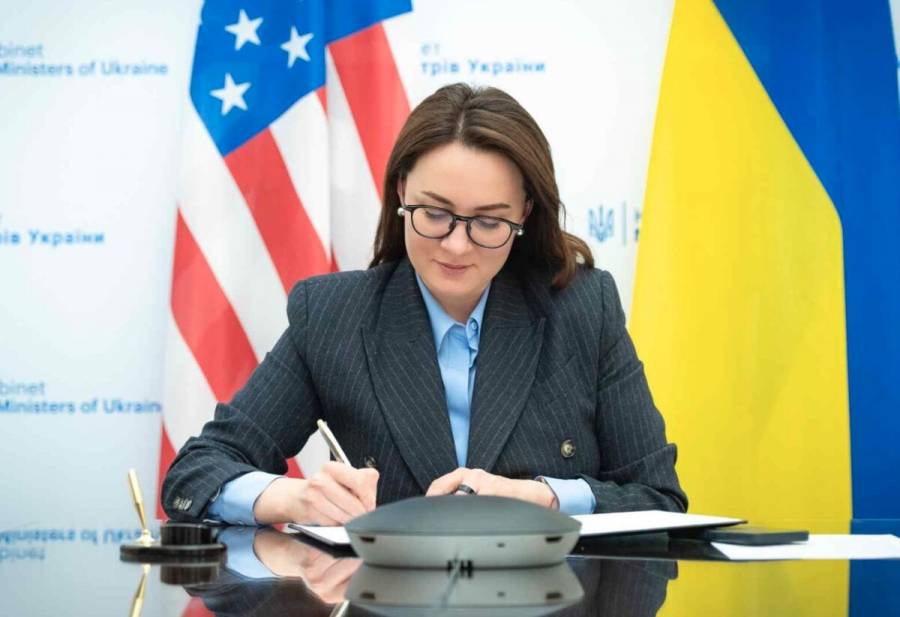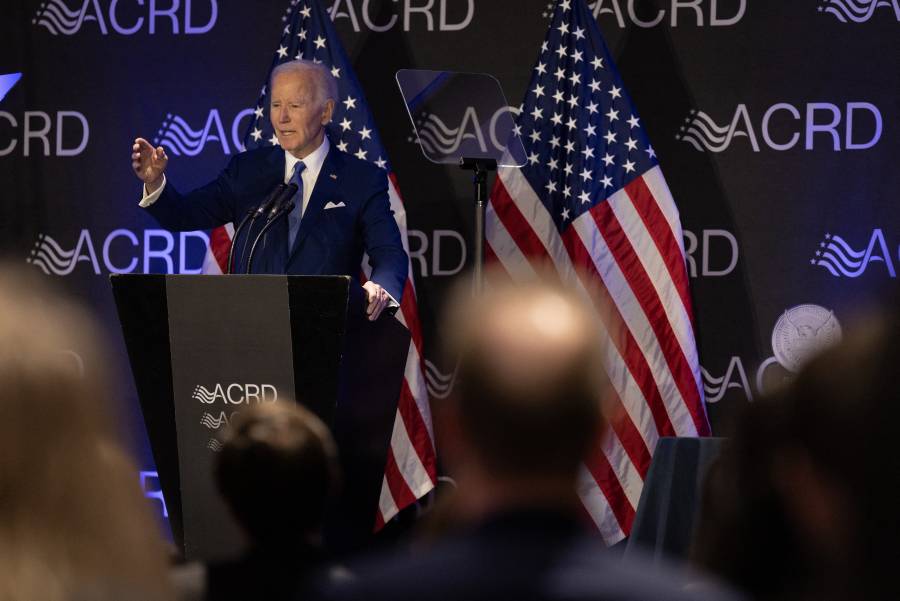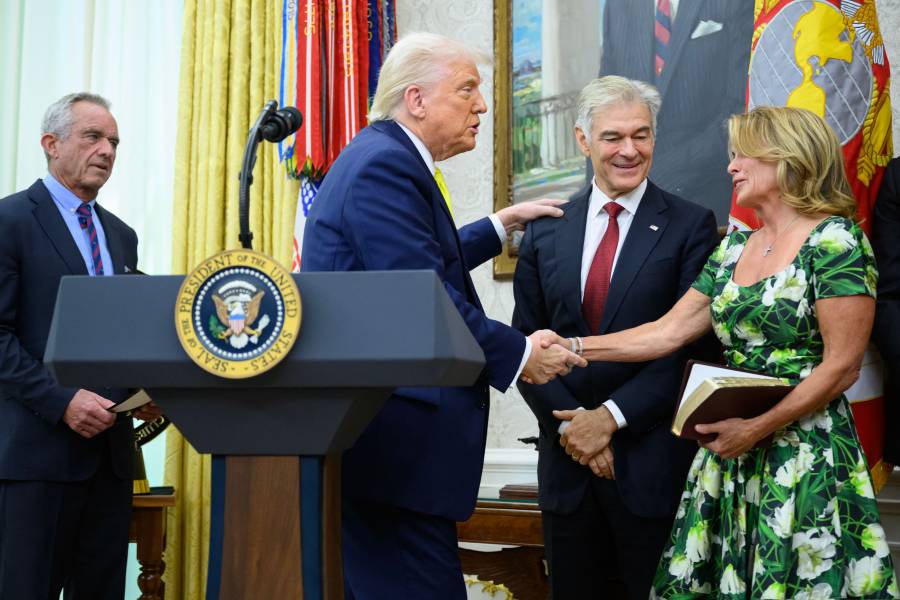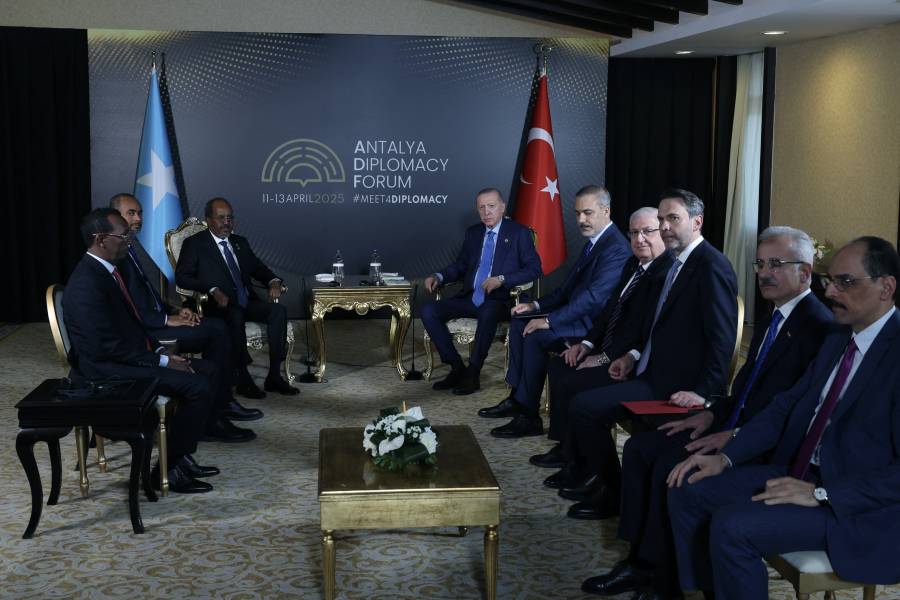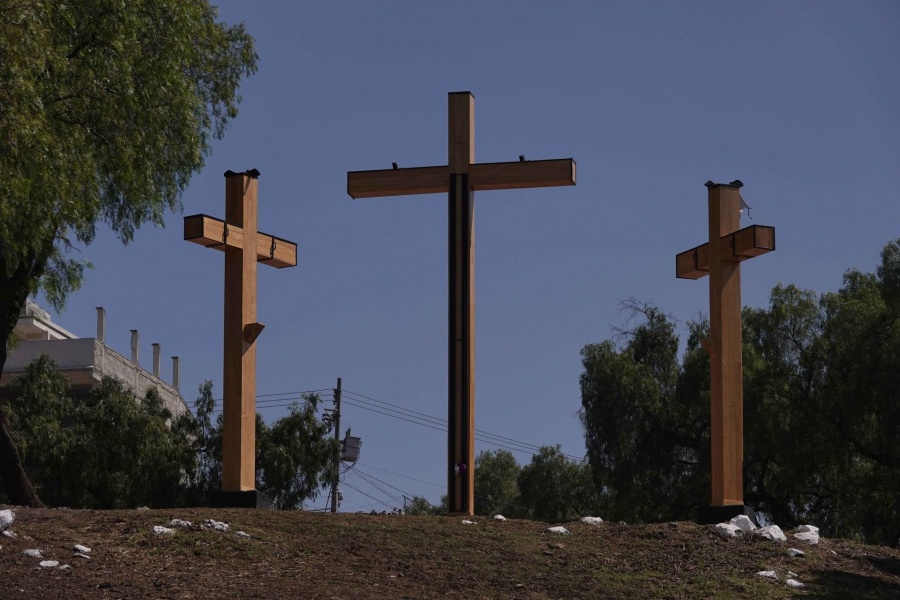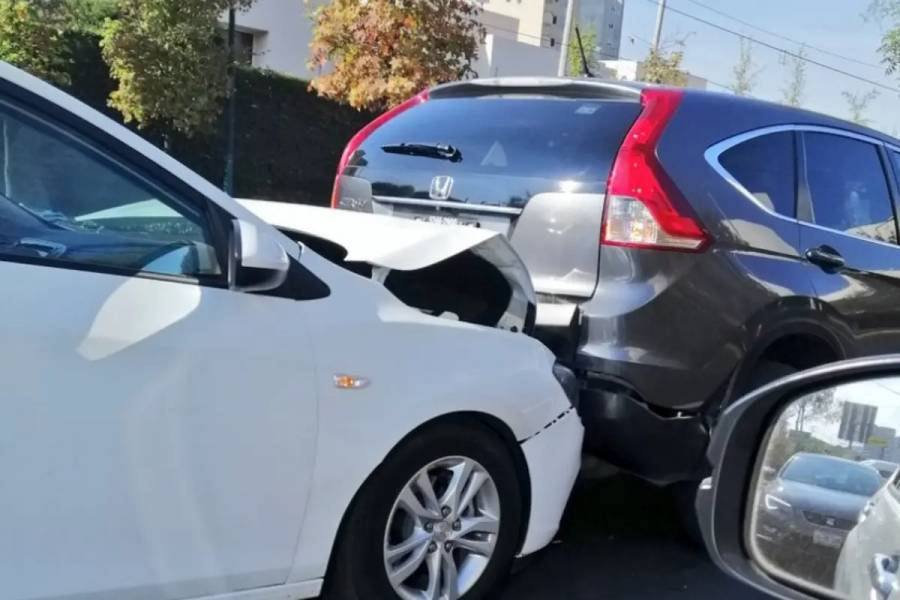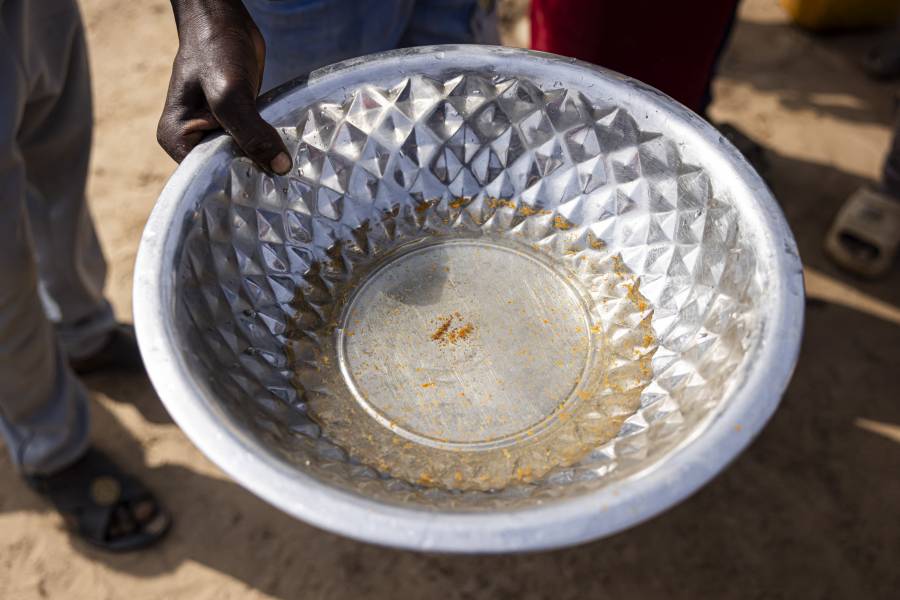 Síguenos @ContraReplicaMX
Síguenos @ContraReplicaMX
Una mina gigante devora la fértil costa de Senegal
Global
AFP
Como en la película de ciencia ficción "Dune", la "draga minera más grande del mundo" ha estado devorando hectáreas tras hectáreas de la fértil franja costera donde se cultivan la mayor parte de las verduras de Senegal.
La cicatriz irregular de 23 kilómetros de largo (14 millas) que la gigantesca plataforma ha dejado durante la extracción de circón (que se usa en cerámica y en la industria de la construcción) es tan grande que es visible desde el espacio.
En medio de un ruido ensordecedor, la enorme máquina absorbe miles de toneladas de arena mineral por hora, avanzando sobre un lago artificial creado con agua bombeada desde las profundidades del subsuelo.
Ahora atraviesa las dunas de Lompoul, uno de los desiertos más pequeños y hermosos del mundo, un foco turístico junto a las interminables playas de la costa atlántica de Senegal.
Miles de agricultores y sus familias han sido desplazados durante la última década para dar paso a la colosal fábrica flotante dirigida por el grupo minero francés Eramet.
Niega haber actuado mal, insiste en que sus operaciones son ejemplares e incluso planea acelerar el ritmo de la minería.
Pero los lugareños lo acusan de destruir este rico pero delicado ecosistema en el extremo occidental de la región semiárida del Sahel de África.
"El proyecto ha generado "desesperación y desilusión", dijo Gora Gaye, alcaldesa del distrito de Diokoul Diawrigne que abarca Lompoul.
Durante años, los críticos de la mina dijeron que las protestas de los aldeanos por la pérdida de tierras fueron ignoradas y que las autoridades silenciaron las quejas sobre compensaciones "irrisorias".
- El nuevo presidente se pronuncia -
Eso ahora ha cambiado: los operadores turísticos se han unido a los agricultores y líderes locales para exigir una pausa en la minería.
El presidente de Senegal, Bassirou Diomaye Faye, también se ha pronunciado sobre las prácticas mineras extractivas, afirmando que algunas poblaciones locales no se benefician. La semana pasada, insistió en su exigencia de mayor transparencia y supervisión de los impactos sociales y ambientales.
Su gobierno fue elegido el año pasado prometiendo una ruptura radical con el pasado y recuperar la soberanía de Senegal, particularmente de la influencia de la antigua potencia colonial Francia.
Eramet, propiedad francesa en un 27 %, comenzó a explotar minas en 2014 durante el gobierno anterior, tras haber obtenido la concesión diez años antes. El estado senegalés posee el 10 % de su filial local, EGC, que extrae circón y minerales relacionados con el titanio, como el rutilo y la ilmenita.
A la AFP se le concedió un acceso excepcional a sus operaciones, así como a la draga y a las plantas donde se separan las arenas minerales antes de ser exportadas a través del enlace ferroviario privado de la empresa a través del puerto de la capital, Dakar, a 240 kilómetros al sur.
EGC insistió en que era una "empresa responsable", que respeta su acuerdo con el gobierno de Senegal y que ha compensado a los lugareños por la pérdida de sus tierras "cinco veces más" que las directrices nacionales, pagando entre 12.190 y 15.240 euros (16.575 dólares) por hectárea.
Oasis fértiles 'destruidos'
But what are they left with afterwards, asked hotelier Sheikh Yves Jacquemain, who runs a desert eco-lodge of traditional tents in Lompoul, where until recently the only sounds were from seabirds and passing camels.
"The mine is moving forward: the fate of people once the mine has passed is no longer their problem," he told AFP, the roar of the gigantic dredger 150 metres (165 yards) away almost drowning him out as it ate through the landscape.
Of Lompoul's seven tourist camps, six have accepted EGC's money and have moved. Jacquemain is holding out for "just" compensation for him and his 40 employees.
Local communities also accuse the mine of destroying and "degrading the soil and the dunes" and threatening their water and food security.
Farmers say the compensation for the land is based on guidelines dating from the 1970s and does not make up for the irredeemable loss of revenue from their once-fertile fields.
The hollows between the dunes were oases, a rare ecosystem "which produced until recently 80 percent of the fresh vegetables eaten in Senegal", according to mayor Gaye.
- 'We want our land back' -
Gaye said locals were initially optimistic about the mining.
But all they have gotten were "broken promises, intimidation, the destruction of our ecosystem and the catastrophic moving of villages. Economic development has gone backwards," he added.
EGC argues that it has rehoused farmers and their families in four large new villages with modern infrastructure.
"A total of 586 houses and community infrastructures (a health centre, school and mosques...) have been built" serving 3,142 people.
But gathered in the square of one of the new settlements at Foth, Omar Keita and around two dozen other heads of families were quick to show their anger.
"We want our land back and our village rebuilt so we can go back to how we were living before," Keita, 32, told AFP. "I appeal to the president and even to France," he declared.
He said he was not given a new home and showed AFP where his wife and three children have lived for the past six years -- a single room "loaned by my big brother", a mattress lying on the floor.
But EGC's managing director Frederic Zanklan insisted that "every family was rehoused in relation to how they were when the count was made", adding that it was "nothing to do" with them if families had since grown.
But Keita said that before he was displaced "I had my fields and my house... We earned our living decently but they reduced that to naught and I have to start again from zero..."
"Here I have to work in other people's fields," he said.
Ibrahima Ba, 60, was equally livid. "We have gone backwards in every way," he told AFP.
While still a farmer, today's harvests are nothing like what they were "in my village, the soil was very fertile, we had fresh water and we had no problems".
He called on President Faye and his prime minister to help them "because a foreign country is destroying the life of Senegalese citizens".
But EGC's Zanklan said the mining group had respected the law to the letter and argued that "the project is benefiting the country... generating 149 million euros for Senegal in 2023".
He said they had paid "25 million euros in taxes and dividends" on their 215-million-euros turnover.
"Nearly 2,000 people work in the mine and the separation factories, 97 percent of them Senegalese," with nearly half of them locals, Zanklan added.
He said the company made the fourth-biggest contribution among mining groups to Senegal's state budget, according to data from the Extractive Industries Transparency Initiative.
EGC is the "first mining company to return reclaimed land to Senegal" and replant it with trees, its managing director added.
But locals complain that the land is not "returned" to them but to the Senegalese state, which has traditionally allowed farmers to till state land.
"They promised to give the land back to us so we could continue to use it, but they have not kept the promise," farmer Ba said.
- Calls for moratorium -
Close to where AFP saw the restored land, farmer Serigne Mar Sow pointed to the murky puddles in a barren field which he said showed the "immeasurable damage" done by the mining.
The water pumped up from 450 metres underground for the lake for the dredger rig remains close to the surface. EGC insists that this benefits vegetable growers.
But Sow sees it differently. "The vegetables and bananas we used to grow here are dead because of the water that floods our fields from the dredger 2.5 kilometres from here."
"The land is no longer fertile," he said.
Surrounded by dead manioc and banana plants, he claimed that the water was polluted with "chemicals".
"There are 15 to 20 fields around here which have been abandoned because of that water coming up -- a drastic fall in the land we can get a harvest from."
But EGC insists that "no chemicals are used", and that the extraction is "purely mechanical".
Gaye, the mayor of Diokoul Diawrigne, has demanded that Senegal "stop the mining for the moment so serious studies can be carried out on the damage being done -- and so we can make a proper comparison of what all this is bringing to the state and to communities".
"We cannot close our eyes" to what people are going through, he argued, "whatever Senegal gets from this business".
Zanklan countered that there is "no need for a moratorium... If there are worries, the authorities can come and inspect when they like".
De hecho, EGC espera aumentar la capacidad de la draga en más de una quinta parte, a 8.500 toneladas por hora a partir de 2026, dijo.
Paralizar la explotación minera “significaría dejar a 2.000 personas sin trabajo y acabar con los beneficios económicos para el Estado de Senegal. Sería irresponsable cuando el país necesita realmente desarrollarse”, afirmó.
Mientras tanto, la draga continúa devorando las dunas de Lompoul, el desierto más pequeño de África y uno de los más pintorescos.
lp/mrb/els/fg/yad
© Agencia France-Presse
Envíe un mensaje al numero 55 1140 9052 por WhatsApp con la palabra SUSCRIBIR para recibir las noticias más importantes.
SG/CR
Etiquetas
2025-04-19 - 16:02
2025-04-19 - 15:49
2025-04-19 - 14:35
2025-04-19 - 12:08
2025-04-19 - 12:07
2025-04-19 - 12:01
2025-04-19 - 08:50
2025-04-19 - 08:25
2025-04-18 - 21:52
2025-04-18 - 15:55


